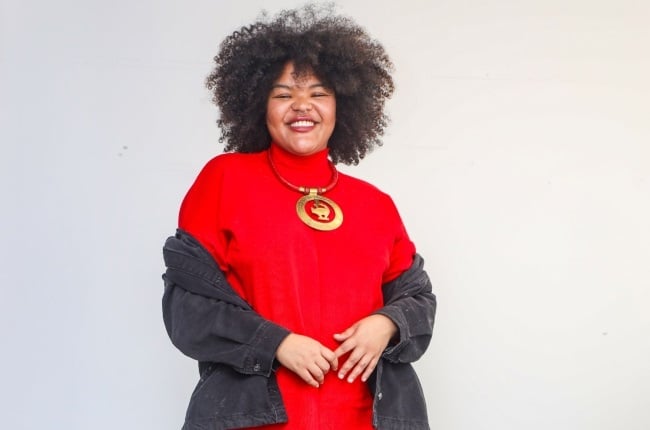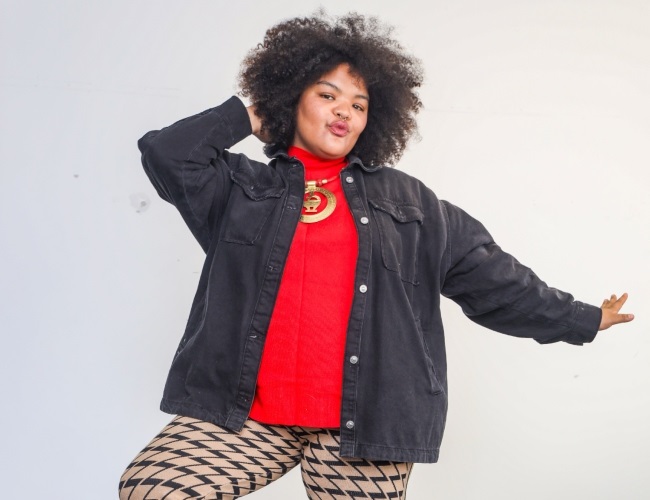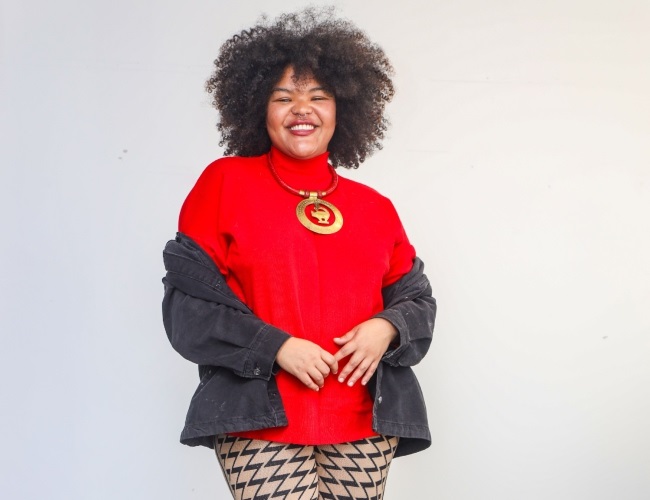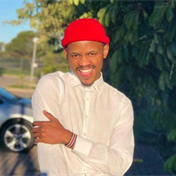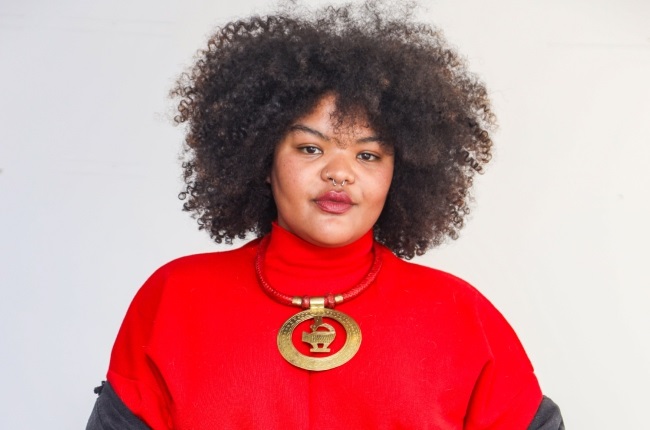
As Pride month draws to a close, Kim Windvogel shares their story.
Kim is an author and the founder of a non-profit organisation, FemmeProjects NPC, which runs workshops on sexual and menstrual health for adolescents at schools.
They identify as queer and are also known as Blazing Non-Binary.
This is Kim's story:
“I am a 32-year-old from Cape Town and I've been living in Johannesburg for five years. My sexual orientation is pansexual, but I prefer to call myself queer because my gender is very fluid.
Being queer means living my life openly. I can explore my gender and I don’t have to explain who I am dating. Being queer means I am open to exploring my gender and my sexuality.
I don’t remember having to come out to my parents. I just found myself falling in love with a woman in 2013. I asked myself if I must explain to my family that I am lesbian or that I'm in love with a woman.
So, I decided that I wouldn't explain anything and I'd just let them meet her. They did, and it was a lovely, wholesome meeting between a person I was in love with and my family.
@youmagazine_za As Pride month draws to a close, Kim Windvogel shares their story. Kim is an author and the founder of a non-profit organisation, FemmeProjects NPC, which runs workshops on sexual and menstrual health for adolescents at schools. They identify as queer and are also known as Blazing Non-Binary. Link in our bip fir thirr full story. #pridemonth #pridetogether #nonbinarytiktok #queertiktok ? Corporate VP / Employee Interview / Nice Workplace(1021525)
After meeting her, my parents called my sister to ask if I was a lesbian.
My feeling about it was, 'I don’t owe an explanation to anyone and they will catch up'.
I didn’t see the need to come out to them, because I had come out to me and learned something new about me. I never came out to say 'I am dating men', so why should I come out now?
I was raised by very open-minded parents and they've never changed how they treat me. They've continued to show me the same love and respect I've always had from them.
READ MORE| ‘How I came out to my father as sexually fluid – and his reaction was unexpected’
I remember when I came out to my best friend, though. She was shocked, as she only knew that I'd dated men, but over time, she’s grown to understand me.
I am grateful that I have people in my life who allow me to be me. I wish more families would open themselves to understanding queer individuals.
But one thing that’s extremely emotionally draining is having to explain your pronouns or your sexuality to people.
My pronouns have always been 'they' or 'them'. Labels don’t matter that much to me, but I understand why they matter to others.
But I do care when you use pronouns to put me 'in my place', after I've asked you to refer to me as 'they' or 'them' and you don’t respect that.
I would say I came out to the world when I started writing online about my queerness, when I started my blog and in my book about being queer and understanding different sexual and gender identities.
Living my life as a queer, I wish more people would understand that we want the same things as everyone else – we want love, and cuddles. I want to feel seen - and you don’t have to know about my sexual life for you to see and acknowledge me.
To my queer people, I want you to know that you are not alone.
It gets easier the more you read and research being queer. One thing that kept me going was the support groups I found on Facebook. These became my safe space as I learn to understand myself.
My advice to parents who have children who identify as queer is to find support groups, which are always easily available on Facebook. Once you find support groups it makes it easier for you and your child to be comfortable and safe around each other.”
EXTRA SOURCE: PLANNEDPARENTHOOD.COM




 Publications
Publications
 Partners
Partners





